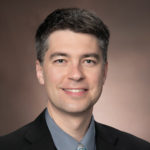America’s senior living communities today face two enormous challenges.
The first is ensuring that there are enough care partners to provide safe, high-quality care for the people in their charge. This was a challenge even before COVID-19. Today, the need is acute, and the ability to retain an enthusiastic, compassionate workforce is the foundation of everything senior living aspires to accomplish.
The second challenge, which is equally important, is ensuring the promise of excellent care that can be delivered consistently, again and again.
In my opinion, the key to success in both instances is the ability to equip those with the training and passion needed to care for older adults through skills that will work time and again in chaotic, unpredictable situations.
Relying solely on workers’ academic training or dedication to serve on their own is insufficient. In some states, any individual can become a care partner. In others, specific certification is required before one sets foot in the private apartment of an older adult. In both cases, care partners walk into some of the most challenging situations — physically and emotionally — that they ever will face in their lives. And in neither case do care partners have all the tools they need to face these situations successfully.
They are asked to help someone take a shower when that person obstinately and loudly may refuse, thinking he or she is being violated. Or they attempt to help individuals in the most intimate aspects of their lives, when confusion, pain and fear drive responses. Care partners may be asked to secure the safety of someone who may be yelling, hitting and falling, while having to ensure their own safety and that of other residents at the same time.
Is it any surprise that so many care partners leave their jobs in the first 90 days? Those individuals routinely confront ethical and emotional dilemmas that leave them questioning their own values and drain their own wells of compassion.
Too many are left ignorant of the effective science-based techniques available. Instead, they are left to simply work with the expectation that their natural communication abilities would prevail. Without the right tools, it is easy to feel like a disempowered, frontline manual laborer instead of an empowered, wellness-supporting professional.
How do we turn this around, liberating our care partners and ensuring better outcomes?
Criteria for results-oriented empowerment
Any solution that attracts new talent, retains current talent and ensures safe, high-quality care will meet the following basic standards:
- Works well in messy, chaotic environments when programs, policies and staffing are not consistent.
- Effective with aggression, anxiety, refusal of care, remaining in bed, inability to stand daily, and withdrawal.
- Empowers care partners and nurses with techniques that work without needing managers to constantly be involved.
- Reduces physical and emotional injury to care partners.
- Can apply immediately, including practice during training.
Those protocols must be developed from evidence-based, observable, repeatable techniques that anyone can memorize and practice regardless of education, language or cultural background.
Humanitude: A results-driven solution
Desiring to see this situation improve, our team began searching globally for a solution. What we found has been both inspiring and, above all, highly successful.
Originally developed in France and largely unknown in this country, Humanitude is a holistic ethos of care that has been implemented in countries across Europe and Asia with staggering success. More than 50,000 care partners have been trained in Humanitude techniques in more than 1,000 organizations. These techniques deliver results immediately.
In our pilots conducted here in the United States, our teams saw 90% resolution rates in key quality of life metrics, such as refusal of care, yelling and aggression. Multiple “third births” were witnessed as people with severe dementia, withdrawn and unable to communicate, were brought back successfully into a relationship. For us, the Humanitude approach has been an unequivocal success.
For example, a gentleman who refused to be bathed by anyone but his own daughter began accepting care from our team by the fourth day of training. In another instance, a resident who refused to sleep in his bed and instead walked the halls at night, began sleeping in his own apartment as his personal space became safe and sacred again. A woman who yelled continually calmed rapidly and became peaceful. Another woman who had not stood in two years finally stood again. One of our care partners looked at her own hands and exclaimed, “I have the power in my own hands to make a difference!”
At Koelsch Communities, we’re on a nationwide talent search to start developing U.S.-based Humanitude trainers. We’re implementing Humanitude now by bringing in experts from other countries until we can develop local talent. With hospitals, gero-psych centers and skilled nursing facilities across Europe and Asia seeing significant success, we are dedicated to solving those two challenges of senior living here in America by equipping as many care partners as possible with these powerful skills.
Benjamin Surmi is the director of education and culture at Koelsch Communities, a third-generation, family-owned and operated senior living provider. More than 60 years old, the company offers independent living, assisted living and memory care.




